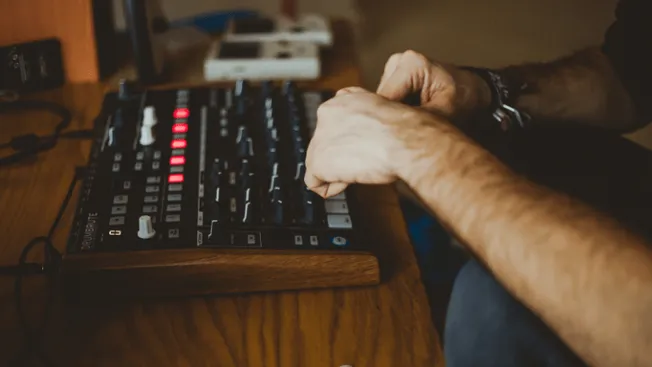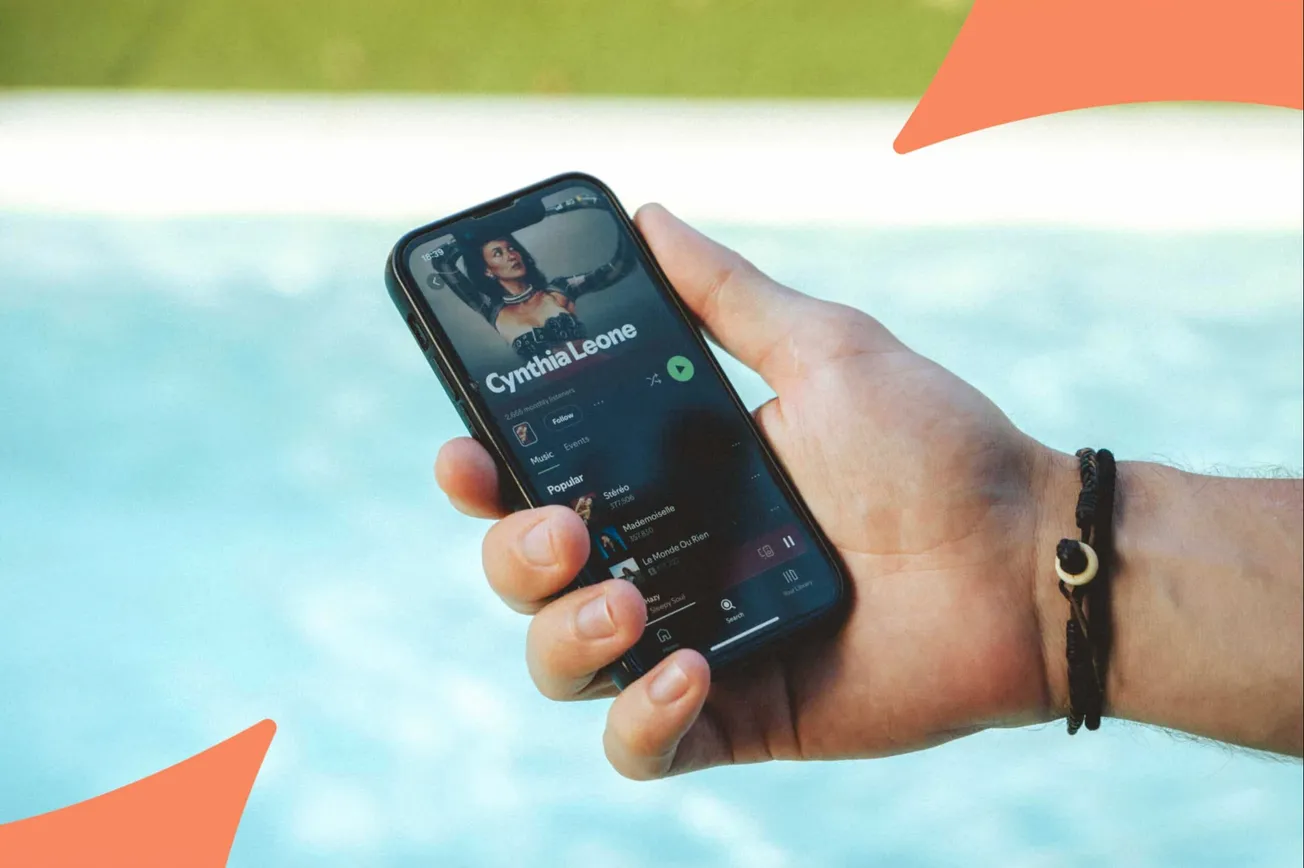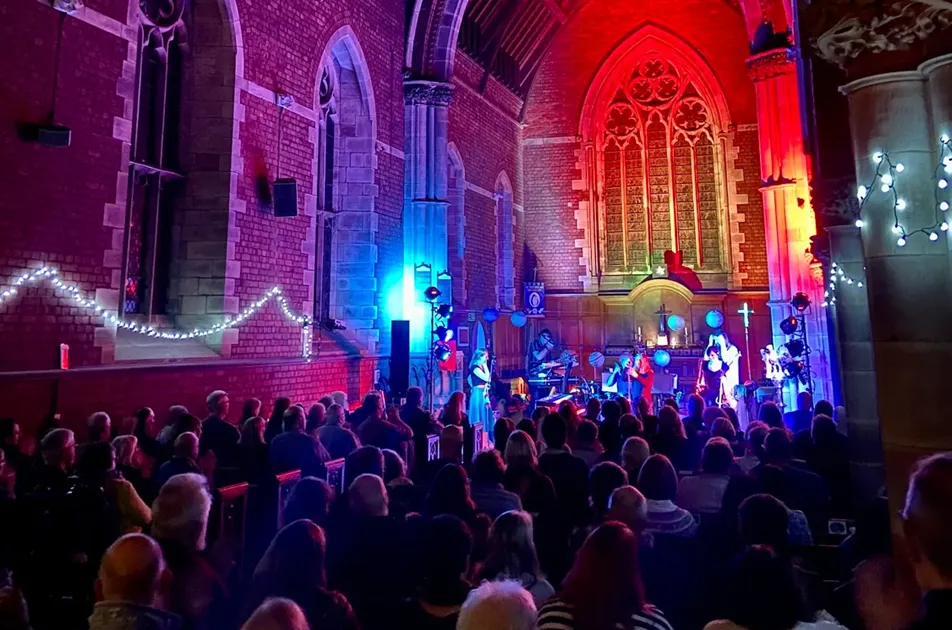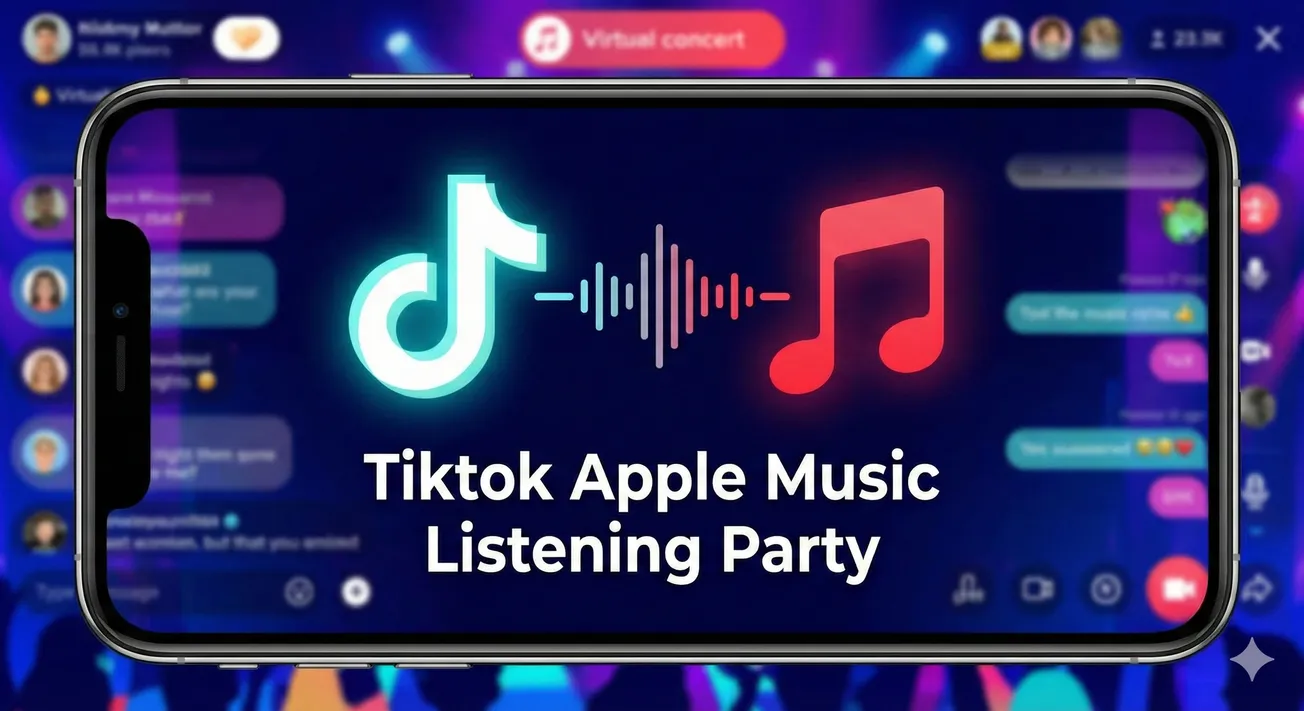If you’re an experienced or beginner producer who’s pondering the idea of a career in music production, then I have good news for you, my friend – there are now more ways than ever before to make money as a music producer in 2022!
by DITTO MUSIC
Apart from just making beats and selling them online, there’s a whole list of other things you could be getting involved with that’ll not just put some extra money in your pocket, but also raise your brand and diversify your skill set at the same time. The key is being open-minded, branching out and applying your expertise and knowledge to as many lucrative opportunities as possible.
How much do music producers make?
According to figures published in 2022, music producers on average make around $32, 379 per year as a base salary.
It’s important to remember that this salary is an average.
Each music producer’s salary will be different and determined by a number of factors, including how far along in their career they are, their experience, education, location and other artists or collaborators they’ve worked with.
Some producers may also work on an hourly basis rather than a salary, or charge the artist’s they work with based on an agreed royalty split. So there’s really no set rhyme or reason to how much you could make.
But one thing is for certain – there’s a whole bunch of music revenue streams out there that music producers can tap into to make more money from their production talents.
12 ways to make money as a music producer
Here’s 12 viable ways to make money as a producer that are open to most (if not all!) beginner and expert producers.
1. Earn from streaming royalties
If you’re producing music that’s high quality and that listeners want to stream, you can guarantee a large portion of your income will come off the back of streaming royalties.
To cut a long story short, music royalties are generated by having your music available on music streaming and social media platforms like Spotify, Apple Music & Instagram.
Every time a listener plays your track or song, you’ll generate money in the form of mechanical royalties.
So if you aren’t already distributing music online, sign up with Ditto now to start collecting royalties and earning money from digital streams of your music.
Find out how much money you could be making per stream with our Spotify pay per stream calculator.
2. Sell your beats & samples online
Any beats, loops or samples that you create are all viable products that you can sell online and make some money from.
And the best part is – you can do it over and over again.
Create, sell, cash-in, repeat.
You can sell beats and sample packs either via your own music website, or through external websites and libraries, like Splice Sounds and ADSR Sounds.
And when it comes to setting a price for your products, have a look at what other producers in a similar career point as you are starting their prices from.
Beats, loops and samples can range widely in prices – so take into account the following factors when deciding your price:
– The quality of the beat
– How big the clientele is
– How famous or well-known you are as a producer
3. Produce for other artists
Music production is a very specialised skill set – and one that many new and up-and-coming artists won’t have.
This makes your production talent and knowledge highly desired by artists who don’t have the skills or tools to deal with the trickier technical aspects of recording and production.
Not only will you be able to earn some money in exchange for producing some fascinating sonic spectacles for a new artist, you’ll also be raising your own industry clout from the exposure that comes with music collaborations and building relationships with other creatives in your field.
4. Become a ghost producer
Not as ghoulish as it sounds – a ghost producer is essentially someone who creates music for other producers anonymously.
So while your work won’t necessarily be getting credited to you, you’ll instead be compensated in terms of a monetary benefit, which can actually work as a great secondary stream of regular income.
Plus it’s made easier by the host of platforms out there where you can offer your ghost production services – including EDM Ghost Production and House of Tracks.
5. Go freelance
Make use of freelancing platforms like Fiverr and Upwork to find a whole bunch of clients who require musical assistance for projects like websites and start ups.
One of the best parts about doing freelance work is there’s no long term commitment – you can opt in or opt out anytime you like.
From background scores to short films to editing tasks, you can get involved in some cool projects and learn new skills along the way – all whilst receiving a (sometimes hefty) cheque after completion.
6. Offer mixing & mastering services
If you’ve got some serious mixing and mastering skills, then this is another financial op for you to get in on as a music producer!
The mix and master is oftentimes the final step in developing a polished album arrangement – and one that usually requires a professional hand.
Many music producers have gone down a professional career path in sound engineering from their specialisms in mixing and mastering, which makes it hardly surprising that these skills are some of the most sought after in the industry.
Just remember – there’s a big difference between mixing and mastering – so It might be better to specialise in either one or the other so you can offer the highest quality service possible.
7. Lend out your home studio
Having your own, kitted out home studio is like a music production gold-mine.
Not only can you make the most of all the equipment you’ve gathered to create some killer beats and loops, but you’d be surprised how many new producers would pay for the opportunity to rent out your set up and borrow your resources!

If you’ve already got a home studio setup, you can start feeing artists who want to use your studio to record their music.
And if you haven’t, check out this post for a rundown of how to build a studio on a budget, including all the gear you need to get started.
8. Music sync licensing
Sync licensing & deals are an extremely lucrative way of making money for music producers in particular.
Why?
Music producers are the beings behind the sonic cues and instrumentals that play in movies, television shows, video games and more. So if your track gets used as a soundtrack on any of these forms of AV media, you’ll be racking in money off of the licensing on your tracks.
Ditto Music Publishing are experts in music sync, having gained placements for our artists on big global networks such as CNN, Netflix & BBC. Sign up today to start getting your music pitched by our publishing team.
Video game music is a particularly booming space that music producers can tap into. As a medium that’s rich for its background scores, soundtracks and sound effects within gameplay, producing music for video games can actually prove a fairly easy task for seasoned producers.
A good way of getting yourself noticed by tv producers and gaming developers is to start building a portfolio of some high quality samples of your own work that shows off what you can do.
9. Start a YouTube channel
With the rise of social media and music influencer marketing, many producers have turned into vloggers in their own right, using Youtube to not only upload their beats for others to use, but also to grow their fanbase by putting out regular music production content and establishing themselves as an authority in the field.
Create a consistent upload schedule and start putting out engaging content that budding musicians would love to see, such as;
– Gear and equipment recommendations
– A home studio tour
– Behind the scenes vlog style content
– Production techniques and tutorials
Don’t forget – monetising your channel is the important bit. That’s how you’ll generate money from your YouTube content. You’ll only be able to monetise your channel once you’ve reached 1000 subscribers and 4,000 watch hours.
10. Earn as a club DJ
Handy on a turntable? (a lot of music producers usually are!)
If live performing is your thing, getting DJing gigs goes hand in hand with music production. Extending your role to that of a Club DJ, could add a hefty amount of supplementary cash flow to your back pocket!
The good news is, the DJ gig scene is booming!
The bad news is, there’s a lot of competition.
The best advice is to start small and local when it comes to reaching out and breaking into the DJ scene, by playing sets at nearby clubs and pubs. Then once you’ve built some clout, you can start moving up the ladder into bigger clubs and venues, where you can get paid by promoters, venue owners or sell tickets to your sets.
In both scenarios, you’ll also be earning more income off the back of performance royalties – so it’s a win-win situation really!
11. Impart your wisdom
More and more people are eager to learn new skills – especially those they weren’t taught in school.
Music production is a sellable skill that you can share with newcomers to the field and industry.
There’s a few different ways you can approach teaching what you know, including:
One-to-one teaching: Digital tech and the rise of video chat has made one-to-one teaching a viable option, both in person and online too.
Creating online courses: Platforms like Udemy and Coursera let you design and create your own course material, which means you could produce and sell structured courses on different tutorials and processes in music production.
Patreon for musicians: Crowdfunding and music subscription services like Patreon are a great way to exchange and share your expert knowledge, while getting paid for the resources and teachings you provide to contributors.
12. Sell your merch
Besides simply selling your music, beats and samples, you can make a heap of dolla selling personalised music merch that your fans can wear (or use) with pride!
Selling your merch – whether that’s a mug, t-shirt, hat, keyring, poster, badge or something else – can actually prove pretty easy and affordable to do.
Once you’ve designed and manufactured your merch, you can start distributing it via your website, or using e-commerce platforms like Printful and Shopify.
Check out our list of 10 cool merch ideas to get you started with a seriously killer merch line!





